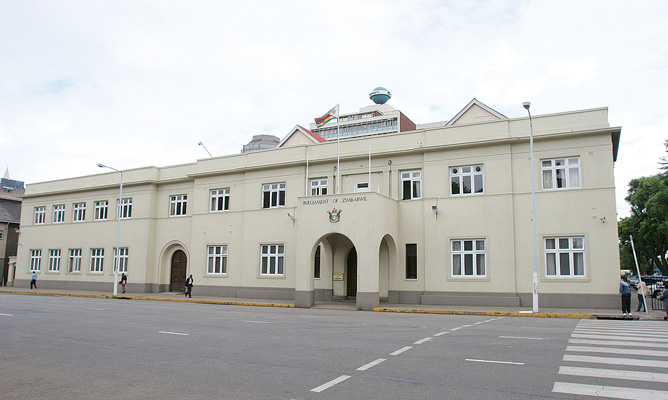
BUSINESS REPORTER
Government last week published a Bill seeking Parliament’s condonation for four years’ worth of unauthorised expenditure amounting to US$10 678 603 044.
Here, we explain what the ‘Financial Amendments Bill of 2019 means.
Why is government seeking condonation?
All government spending, with the exception of constitutional and statutory appropriations, requires the approval of Parliament.
Government expenditure, such as spending by various ministries, requiring Parliament’s approval is classified under ‘Vote Appropriations’. Other expenditure, provided for by the Constitution — such as the requirement of Section 301(3) that at least 5% of the government’s annual revenues be allocated to the provinces and local authorities – is classed under ‘Constitutional and Statutory Appropriations’. These do not require the prior approval of Parliament. Each year, the minister responsible for finance is required to table, before Parliament, an estimate of revenue and expenditure that the government expects for the following year.
Should these approved financial resources fall short, as happened most recently in August 2019, the minister responsible for finance is required to approach Parliament with a supplementary budget to seek additional funds.
Under Section 307 of the Constitution, where more money than was approved by Parliament has been spent by the government, or where the expense was not budgeted for altogether, the finance minister is required to seek Parliament’s condonation for the unauthorised expenditure. Government is required, by the Constitution to seek this condonation “no later than 60 days after the extent of the unauthorised expenditure has been established.” Zimbabwe’s government has, since 2012, run budget deficits which kept widening each year, reaching a peak of 11% of GDP in 2017. The deficit started to narrow in 2018, when President Emmerson Mnangagwa’s administration started pursuing fiscal consolidation. The deficit is projected to be under 5% this year and around 1.5% in 2020.
- Chamisa under fire over US$120K donation
- Mavhunga puts DeMbare into Chibuku quarterfinals
- Pension funds bet on Cabora Bassa oilfields
- Councils defy govt fire tender directive
Keep Reading
Between 2015 and 2018, the government recorded almost US$9,7 billion in unauthorised expenditure, which the Mnangagwa administration is now seeking condonation for. Why now?
This is not the first time Zimbabwe’s government has had to seek Parliament’s forgiveness for unauthorised expenditure. In 2009, under the power-sharing government, the then Minister of Finance, Tendai Biti, tabled a Financial Adjustments Bill to seek Parliament’s absolution for unauthorised expenditure by various government ministries in 2006. Interestingly, Biti now leads Parliament’s Public Accounts Committee (PAC), which oversees the executive’s expenditure, and has directed Treasury to seek condonation.
“Government must at all times adhere to the approved budget. The Minister of Finance and Economic Development must as a matter of urgency bring to the National Assembly, Bills seeking condonation of all the unauthorised expenditure incurred since 2014. Such condonation must be sought by end of 31 August 2019,” the PAC said in its July, 2019 report. Under Biti, the PAC has gone further than its largely ineffective predecessor committee, which was led by his MDC colleague, Paurina Mpariwa, between 2013 and 2018, when the bulk of the unauthorised expenditure was contracted.
What happens now?
The Financial Adjustment Bill is a routine Bill which is typically passed without much fuss.
Given Zanu PF’s dominance in Parliament, the current Bill is likely to be passed without any complications. Once passed, the law cures the illegality of unauthorised expenditure. The condonation process is meant to act as a constitutional check against wanton spending and lack of accountability by the executive. — newZWire











